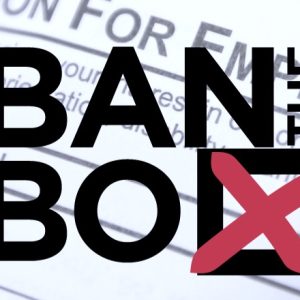When hiring a new employee, there are things you must report, things you must keep available for inspection, and things you must simply give the new hire. Many small business owners aren’t fully aware of what new hire paperwork is required and it does vary some from state-to-state and some cities, parishes, or counties have their own regulations regarding documentation for and of newly hired personnel. It is best to check with your local business development office or chamber of commerce to understand the requirements in your area. In this article, I will share the things required in every state.
Required New Hire Paperwork
W-4 Form
The W-4 determines the amount of federal income tax withheld from your employee’s wages. Many states have their own withholding form, and some states require its completion. These forms change periodically, so it is important to make sure you are using the latest version. Never offer employees tax advice. Always tell them to consult their own tax advisor.
If you need to get the latest tax form for your state, you can google it. We always try to keep the tax forms up to date for your ease of use, here is a link to find the state tax form you need.
I-9 Form
The I-9 is the form used to verify that the individual has the right to work in the United States. According to U.S. law, only individuals with the right to work in the U.S. are to be employed. This does not mean the person must be a citizen of the U.S. only that they have the right to work. There are also people who legally have the right to live in the U.S, but do not have the right to work. This generally happens when they come to the U.S. with a spouse who is on an H1B or similar visa. For that reason, it is critical that you inspect the paperwork provided by your new employee.
Both the new hire and a representative of your company must complete the I-9. Completing the I-9 form can be tricky and simple mistakes have resulted in companies being fined. Learning how to properly complete the I-9 is important. Here is a link to instructions on completing the I-9. Also feel free to contact us at Attaché for Business if you have questions or need help.
Here are some general rules to remember:
- The I-9 form must be completed within the first three days on the job.
- You must have a complete I-9 form for every person on your payroll.
- You must retain the I-9 form from three years after the date of hire or one year after employment is terminated, whichever is later.
- I-9s should be stored together and separate from the employee file. Online storage is acceptable as long as it meets certain requirements. Attaché for Business storage meets those requirements.
Notice of Coverage Options Under FSLA
A Notice of Coverage Options must be provided to newly hired employees within 14 days of their start date. This requirement applies even if you don’t offer health insurance and/or the employee is not eligible for health insurance. Although many small businesses do not comply with this regulation and there is currently no penalty for noncompliance, this is a federal regulation. Get more information here.
New Hire Reporting
Federal law requires that employers submit certain information to their state regarding each new hire within 20 days of the employee’s start date, but several states have shorter timeframes. If you are a small business without an HR / Payroll department with experts, selecting the right payroll company will be critical to compliance. When investigating payroll companies ask if they submit required documents to the state for you. If they do not, keep looking. For recommendations based on your needs, contact us.
State and local notices
Many states and local jurisdictions also require that employers provide specific notices to employees at the time of hire. These required notices cover information specific to the state, such as: state disability insurance, state-run retirement programs, leave entitlements, harassment and discrimination, workers’ compensation, unemployment, and other employment-related benefits and protections. Many states require employers to provide, in writing, the employer’s business name, address, and telephone number; the employee’s rate of pay and regular payday; and certain other information. Provide new hire notices in accordance with your state and local requirements.
Recommended New Hire Paperwork
New Hire Letter
A new hire letter or document is required in some states, but even if it isn’t required in your state, it is important to provide the new hire with a document that states their salary, workdays, paydays, additional benefits, and supervisor with contact information.
Legal Notices
You are required to post legal employment notices in a conspicuously displayed place, visible to all employees. There are posters that provide this information; however, you are required to fill in the blanks. If you have a physical work location, you can get these posters from your local chamber of commerce or google “legal notices posters [your state].” If you run a business that is primarily online or you have remote workers, we can help you create an online location for those documents and have the documents include your specific information.
Handbook Acknowledgment
After new hires are provided with your employee handbook (physical or online), they should sign a form acknowledging that they have received and are responsible for reading and complying with all company policies. We recommend the employee handbook be housed online that way everyone has access to the same document. Providing paper copies of the handbook leads to out of date information being used or referenced. If you do not have an employee handbook, we can help you create one.
COVID Protocols
If your employees meet in person with anyone, this is a time where a written COVID Protocol or policy can help to ease your employees’ and customers’ minds. This should include when masks are required, and if vaccines or testing is required.
Payroll Authorizations
If you offer direct deposit (we believe you should), provide new hires with a direct deposit authorization if they would like their pay deposited directly into their bank account each pay period. A payroll deduction authorization should also be provided for voluntary deductions, such as health insurance premiums and retirement savings plans.
Benefits Information
We talked about the mandatory benefit notice requirement above. Additionally, all new hires should receive information about the benefit programs you offer as well as any forms required to enroll. Note: Employers with health benefit and/or retirement plans must provide a summary plan description (SPD) to individuals when they become a participant in the plan or a beneficiary under such a plan. New employees must receive a copy of the SPD within 90 days after becoming covered by the plan.
Emergency Contact
Getting emergency contact information is essential. Whether you have a remote workforce or everyone is sitting in the same office space. If an employee becomes ill in the office, or doesn’t report to work, or misses a major deadline and is not responsive, you want to contact someone who knows them well. In the latter cases you want to make sure the employee is not ill. Emergency Contact information is easily accessible on the Attaché platform. Make sure your employees complete it within the first few days.
There are several other documents and information you want to provide or receive when an employee first starts their job. Being organized when you have a new employee is important to model an expectation of excellence. Make a list of all the essentials and check it off as it is completed. Have the employee sign that they have received or completed each item.



